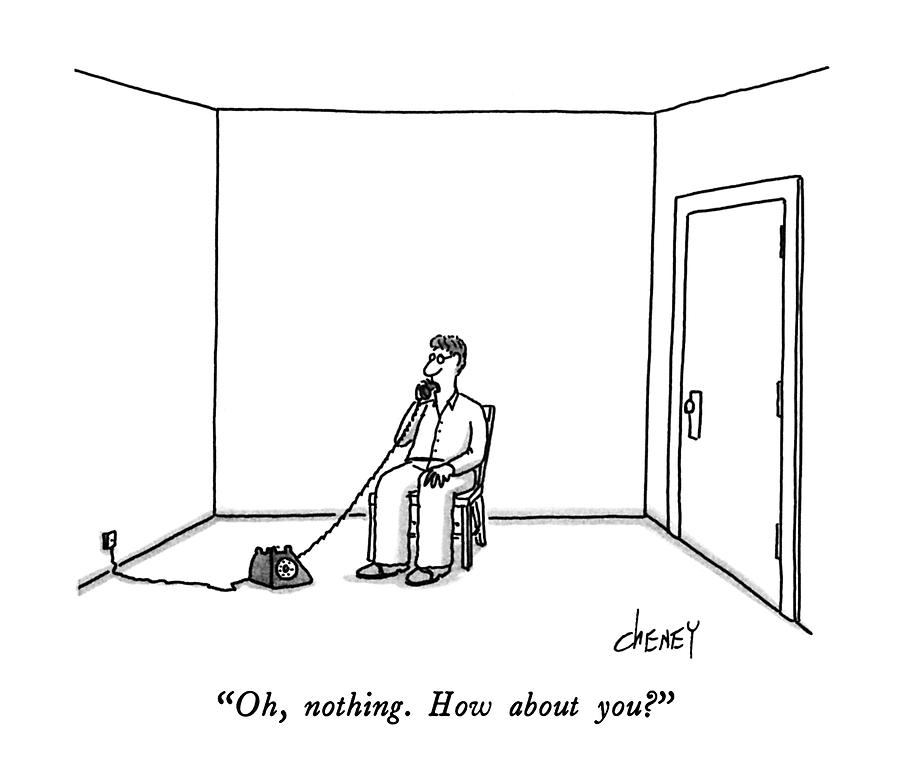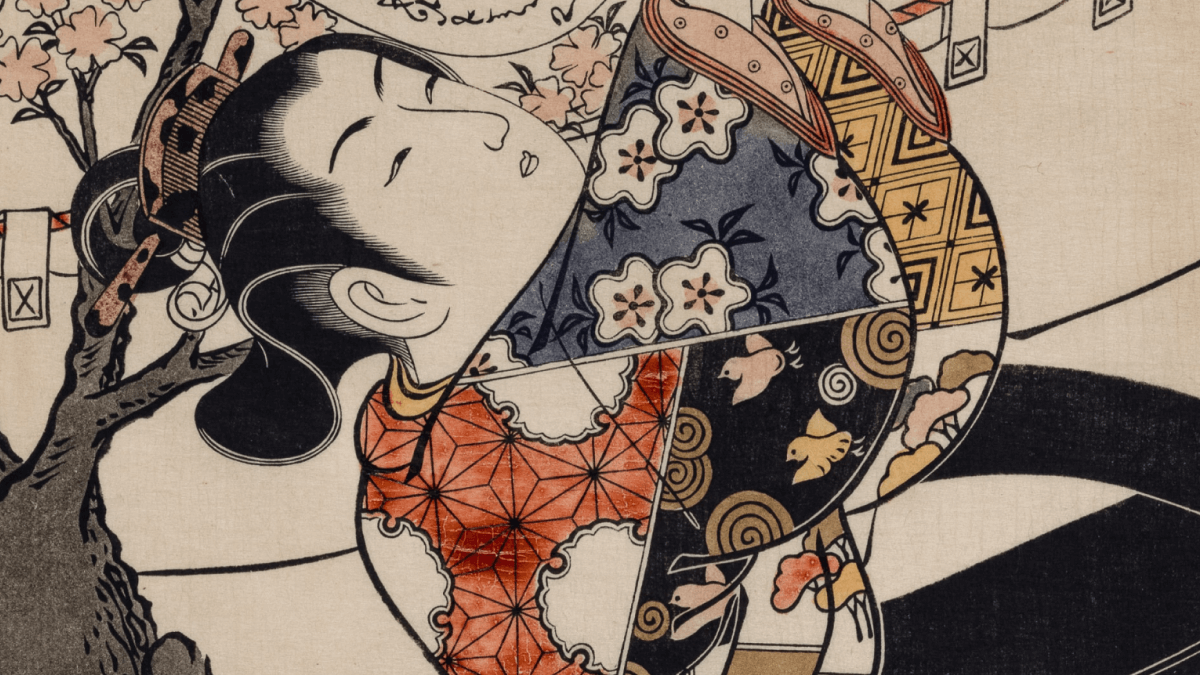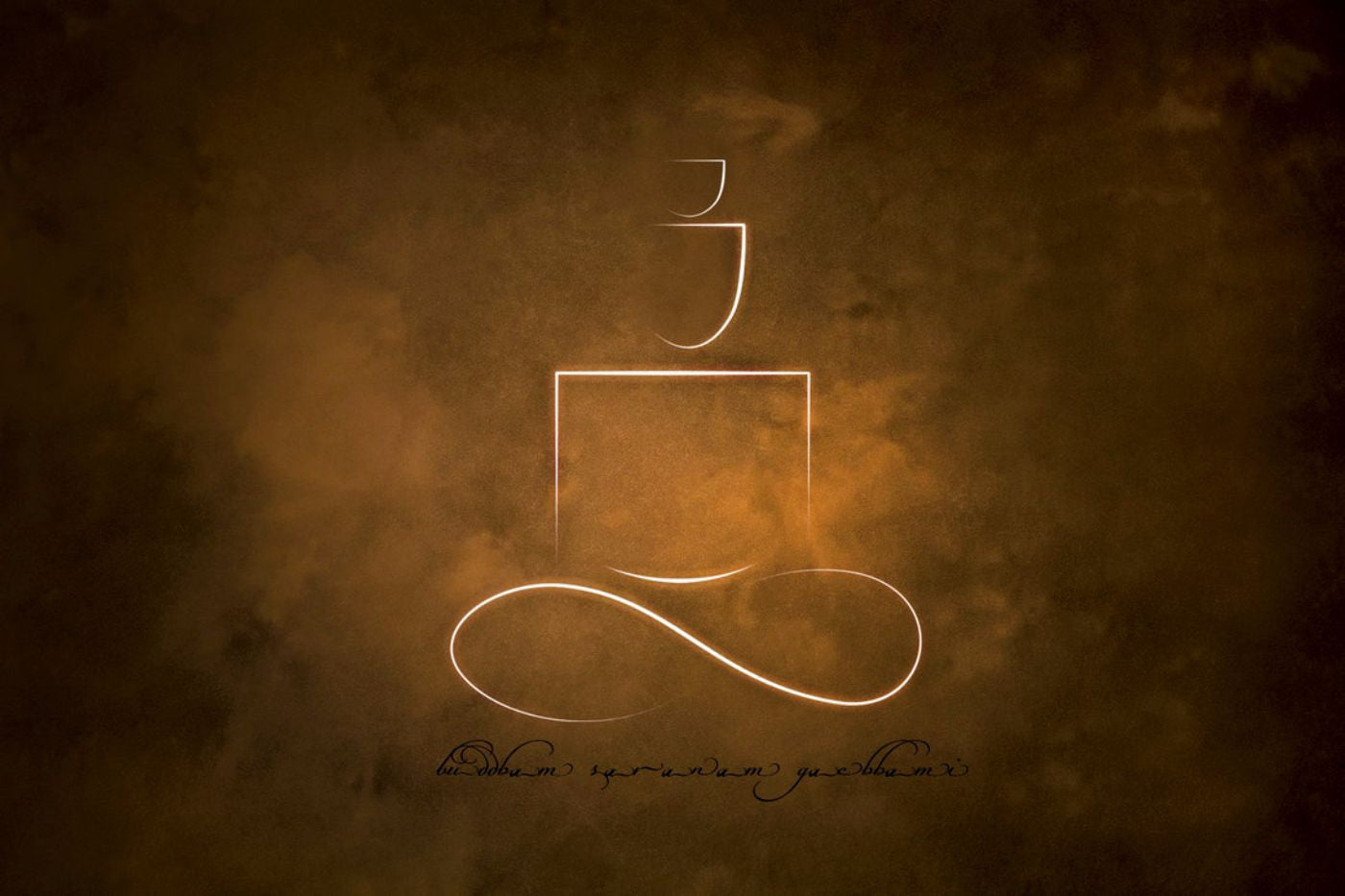
Live to Impress Yourself, Not Others: Embracing Minimalism in All Aspects of Life
Introduction
In a world increasingly driven by social media and consumerism, the pressure to seek external validation can be overwhelming. Many people find themselves caught in a cycle of striving to impress others, often at the expense of their own happiness and well-being. This article explores a transformative approach: living to impress oneself rather than others. By prioritizing personal joy and satisfaction, we can cultivate a more authentic and fulfilling life.
Minimalism, a lifestyle centered on simplicity and intentionality, has seen a surge in popularity in recent years. At its core, minimalism is about stripping away the excess and focusing on what truly matters. This movement is not just about decluttering physical spaces; it extends to our mental, emotional, and social lives as well. The growing appeal of minimalism lies in its promise of clarity, freedom, and a deeper sense of purpose.
Focusing on personal joy and satisfaction is essential in this journey. When we align our lives with our true desires and values, we can experience greater contentment and inner peace. This shift from external to internal validation encourages us to surround ourselves with things and experiences that bring genuine happiness, rather than those meant to impress others.
The intended audience for this article includes individuals from all walks of life who are seeking a more meaningful and joyful existence. Whether you are a busy professional looking to simplify your life, a student seeking balance amidst academic pressures, or someone simply interested in the benefits of minimalism, this guide offers practical insights and actionable steps to help you embrace a minimalist lifestyle and live to impress yourself, not others.

The Essence of Minimalism
Definition of Minimalism
Minimalism is a lifestyle and design philosophy that emphasizes simplicity, intentionality, and the elimination of excess. It encourages individuals to focus on what truly adds value to their lives by removing anything that doesn’t. This approach can be applied to various aspects of life, including possessions, activities, relationships, and even thoughts. The goal of minimalism is to create more space—both physical and mental—for the things that truly matter.
Minimalism is not about deprivation or living with the bare minimum. Instead, it’s about making conscious choices that align with one’s values and priorities. By doing so, minimalists aim to reduce stress, increase clarity, and enhance their overall quality of life.
Historical Background and Cultural Roots
The concept of minimalism has deep historical and cultural roots, drawing from various traditions and philosophies that have long emphasized the virtues of simplicity and intentional living.
Japan
Japan is often cited as a significant influence on modern minimalism. The Japanese aesthetic of “wabi-sabi” appreciates the beauty in imperfection and the value of simplicity. Traditional Japanese homes are characterized by their minimalistic design, with clean lines, uncluttered spaces, and a focus on natural materials. The influence of Zen Buddhism in Japan, which promotes mindfulness and simplicity, has also played a crucial role in shaping minimalist principles.
Other Cultural Influences
- Buddhism and Taoism: These Eastern philosophies emphasize simplicity, mindfulness, and living in harmony with nature. They advocate for a life free from unnecessary desires and materialism, encouraging followers to seek inner peace and contentment through simplicity.
- Stoicism: This ancient Greek philosophy teaches the importance of focusing on what is within one’s control and letting go of external possessions and desires. Stoics believe in living a life of virtue and wisdom, valuing inner peace over material wealth.
- Western Minimalist Art Movement: In the mid-20th century, the minimalist art movement emerged in the United States and Europe, characterized by simple forms and a reduction of elements. Artists like Donald Judd and Agnes Martin sought to strip art down to its essential components, influencing broader cultural attitudes towards simplicity.
Modern Minimalism
In recent years, minimalism has gained widespread popularity as people seek to counteract the effects of consumerism and digital overload. Influential figures like Marie Kondo, with her KonMari method of decluttering, and Joshua Fields Millburn and Ryan Nicodemus, known as The Minimalists, have brought minimalism into the mainstream. Their teachings emphasize the joy and freedom that come from living with less.
By understanding the essence of minimalism and its rich cultural history, we can better appreciate its value and apply its principles to create more meaningful and intentional lives. In the next sections, we will explore practical ways to incorporate minimalism into daily life and the profound benefits it can bring.
Living to Impress Yourself
The Importance of Self-Impression Over External Validation
In a society driven by social media and constant connectivity, the urge to seek external validation is strong. Likes, comments, and followers can easily become metrics for self-worth. However, this external validation is often fleeting and can lead to feelings of inadequacy and anxiety. Shifting focus to self-impression—valuing one’s own approval and satisfaction—can lead to a more stable and fulfilling sense of self.
Living to impress oneself means aligning actions and decisions with personal values and desires, rather than conforming to societal expectations or the opinions of others. It encourages authenticity and self-respect, fostering a deeper understanding and appreciation of one’s true self.
How Embracing Minimalism Can Lead to a More Fulfilling Life
Minimalism, with its emphasis on simplicity and intentionality, provides a framework for living a life that impresses oneself. By removing the excess and focusing on what truly matters, minimalists can create space for personal growth, joy, and fulfillment.
- Reduced Stress and Anxiety: Clutter and excess can be overwhelming and stressful. Minimalism helps reduce physical and mental clutter, leading to a calmer and more peaceful environment.
- Enhanced Focus and Clarity: With fewer distractions, minimalists can focus better on their goals and passions. This clarity can lead to greater productivity and a stronger sense of purpose.
- Financial Freedom: By prioritizing needs over wants, minimalists often spend less on unnecessary items, leading to better financial health and more resources for meaningful experiences.
- Improved Relationships: Minimalism encourages meaningful connections over superficial ones. By focusing on quality over quantity, minimalists can cultivate deeper and more fulfilling relationships.
Examples of Living for Oneself and Finding Joy in Personal Achievements and Possessions
- Creating a Capsule Wardrobe: A minimalist wardrobe, consisting of versatile and high-quality pieces, can simplify daily routines and reduce decision fatigue. Choosing clothes that reflect personal style and comfort, rather than fashion trends, can enhance self-confidence and satisfaction.
- Pursuing Passion Projects: Engaging in hobbies and activities that bring personal joy, rather than those that impress others, can lead to a more fulfilling life. Whether it’s painting, gardening, or writing, dedicating time to what genuinely interests you can be incredibly rewarding.
- Mindful Consumption: Choosing to buy items that add value to your life, rather than those that signal status, can lead to greater contentment. For instance, investing in a comfortable, ergonomic chair for your home office because it improves your productivity and well-being, rather than buying an expensive designer chair for its brand name.
- Personal Achievements: Setting and achieving personal goals, such as learning a new skill, completing a fitness challenge, or mastering a musical instrument, can bring immense joy and satisfaction. These accomplishments are valuable because they reflect personal growth and dedication, not because they garner external praise.
- Creating a Personalized Living Space: Designing a home environment that caters to personal tastes and needs, rather than following current trends, can enhance comfort and happiness. This could mean decorating with items that hold sentimental value, choosing a color scheme that soothes you, or arranging furniture in a way that maximizes your space and comfort.
By focusing on self-impression and embracing minimalism, you can lead a more intentional and satisfying life. In the following sections, we will explore practical ways to incorporate minimalism into daily life and the profound benefits it can bring.

Embracing Minimalism in Daily Life
Possessions
The Concept of Owning Minimal and Living Large
Owning minimal and living large might seem paradoxical, but it encapsulates the essence of minimalism. The idea is to reduce physical possessions to those that are truly necessary and meaningful, thereby creating more space—both physically and mentally—for experiences, personal growth, and joy. By focusing on quality over quantity, minimalists often find that they can enjoy a richer, more fulfilling life with fewer distractions and burdens.
Introduction to the Capsule Wardrobe and Its Benefits
A capsule wardrobe is a collection of timeless, versatile clothing pieces that can be mixed and matched to create a variety of outfits. Typically, it includes around 30-40 items, including tops, bottoms, outerwear, and shoes, that align with your personal style and lifestyle needs.
Benefits of a Capsule Wardrobe:
- Simplifies Daily Decisions: Reduces the time and stress associated with choosing outfits.
- Reduces Clutter: Keeps your closet organized and uncluttered.
- Promotes Quality over Quantity: Encourages investment in high-quality, durable pieces.
- Environmental Impact: Reduces waste and promotes sustainable fashion choices.
Practical Tips for Decluttering and Maintaining a Minimalist Home
- Start Small: Begin with a single drawer, closet, or room. Gradually expand as you build momentum.
- Use the KonMari Method: Marie Kondo’s method involves keeping only items that “spark joy.”
- Adopt a One-In, One-Out Rule: For every new item you bring into your home, let go of an old one.
- Digitize Where Possible: Reduce paper clutter by digitizing documents, photos, and media.
- Regular Maintenance: Schedule periodic decluttering sessions to prevent buildup.
Thoughts and Actions
How Minimalism Can Extend to Thoughts and Actions
Minimalism is not just about physical possessions; it also applies to our mental and emotional lives. By adopting minimalist principles, you can simplify your thoughts and actions, leading to greater clarity and focus.
Benefits of Simplifying One’s Mental and Emotional Space
- Reduced Stress: Less mental clutter means less anxiety and overwhelm.
- Increased Focus: Clearer priorities and goals enable better concentration and productivity.
- Enhanced Well-Being: A simpler mental space can lead to improved mental health and emotional resilience.
Practical Steps to Simplify Thoughts and Actions:
- Mindfulness Practices: Incorporate meditation or mindfulness exercises to calm and clear your mind.
- Limit Multitasking: Focus on one task at a time to improve efficiency and reduce mental strain.
- Set Boundaries: Learn to say no to commitments that don’t align with your priorities or values.
Speech and Relationships
Minimalism in Communication: Speaking with Purpose and Clarity
Effective communication is a key aspect of minimalism. By speaking with intention and clarity, you can foster more meaningful and efficient interactions.
Tips for Minimalist Communication:
- Be Concise: Use fewer words to convey your message without losing clarity.
- Listen Actively: Focus on understanding others before responding.
- Avoid Gossip and Negativity: Keep conversations positive and constructive.
Choosing Meaningful Friendships Over a Large Social Circle
Minimalism encourages cultivating deep, meaningful relationships rather than maintaining a large, superficial social circle. This approach leads to more supportive and fulfilling connections.
Strategies for Building Meaningful Relationships:
- Prioritize Quality Time: Spend time with friends and family who truly matter to you.
- Be Selective: Invest in relationships that add value and joy to your life.
- Practice Authenticity: Be genuine in your interactions, and seek friends who do the same.
By embracing minimalism in possessions, thoughts and actions, and communication and relationships, you can create a more intentional, joyful, and fulfilling life. In the next section, we will explore the benefits of minimalism and practical ways to implement these principles.

Minimalism Around the World
Countries That Practice Minimalism and Their Cultural Philosophies
Minimalism is not just a modern trend; it has deep roots in various cultures around the world. These traditions emphasize simplicity, intentional living, and mindfulness, offering valuable insights into how minimalism can be incorporated into daily life.
Japan: A Detailed Look at Japan’s Minimalistic Lifestyle and Design
Japan is often seen as a beacon of minimalism, with its cultural philosophies and design principles deeply rooted in simplicity and functionality.
Wabi-Sabi:
- Concept: Wabi-sabi is a Japanese aesthetic that finds beauty in imperfection, impermanence, and incompleteness. It embraces simplicity, natural materials, and the passage of time.
- Application: In daily life, wabi-sabi encourages people to appreciate the beauty of everyday objects and moments, fostering a sense of contentment and mindfulness.
Zen Buddhism:
- Concept: Zen Buddhism emphasizes mindfulness, simplicity, and living in the present moment. It teaches that true contentment comes from within, not from external possessions.
- Application: Zen principles can be seen in Japanese homes and gardens, which often feature clean lines, uncluttered spaces, and natural elements that promote tranquility and focus.
Japanese Design and Architecture:
- Characteristics: Japanese design is characterized by minimalism, functionality, and a connection to nature. Homes are often small, with multifunctional spaces and minimal decor.
- Examples: Traditional tatami rooms, shoji screens, and futons that can be stored away to maximize space are common features in Japanese homes. The design prioritizes harmony, balance, and a sense of calm.
Other Countries and Cultures with Minimalist Traditions
Scandinavia:
- Hygge and Lagom: In Denmark, the concept of “hygge” emphasizes coziness and comfort through simple, enjoyable experiences, often in a minimalistic setting. In Sweden, “lagom” means “just the right amount,” promoting balance and moderation in all aspects of life.
- Design: Scandinavian design is known for its minimalism, functionality, and emphasis on natural light and materials. Clean lines, neutral colors, and uncluttered spaces create a serene and inviting atmosphere.
India:
- Buddhist Philosophy: This advocated for a life of simplicity and minimalism, focusing on self-sufficiency, non-materialism, and ethical living. Teachings encourage people to live with fewer possessions and to find happiness in non-material aspects of life.
- Traditional Practices: Many Indian traditions, such as yoga and Ayurveda, emphasize mindfulness, balance, and intentional living. These practices encourage individuals to focus on inner well-being rather than external possessions.
Buddhism and Taoism in East Asia:
- Concepts: Both Buddhism and Taoism promote simplicity, mindfulness, and harmony with nature. They teach that true happiness and peace come from within, not from material possessions.
- Application: These philosophies influence daily life in many East Asian cultures, where people often prioritize inner peace, meditation, and a minimalist lifestyle.
Mediterranean Countries:
- Slow Living: The Mediterranean lifestyle values “slow living,” which emphasizes taking time to enjoy life’s simple pleasures, such as good food, family, and nature. This approach encourages a minimalist mindset, focusing on quality over quantity.
- Design: Mediterranean homes often feature open spaces, natural materials, and a connection to the outdoors, reflecting a simple yet vibrant way of living.
By examining these cultural philosophies and practices, we can see that minimalism is a universal concept with diverse expressions around the world. Each culture offers unique insights into how simplicity and intentional living can lead to greater fulfillment and joy. In the following sections, we will explore the benefits of minimalism and practical ways to implement these principles into daily life.

The Modern Shift Towards Minimalism
The Current Generation’s Belief in Owning Less and Enjoying More
The modern shift towards minimalism is largely driven by millennials and Gen Z, who increasingly prioritize experiences and personal well-being over material possessions. This change in values reflects a deeper understanding that happiness and fulfillment are not found in accumulating things, but in living meaningful and intentional lives.
Key Factors Influencing This Belief:
- Experiential Living: Younger generations value experiences such as travel, hobbies, and social activities over physical items. They seek to create memories and connections rather than collect things.
- Sustainability: Environmental concerns are a significant factor. Minimalism aligns with sustainable living by reducing consumption and waste, a priority for eco-conscious millennials and Gen Z.
- Financial Pragmatism: Economic challenges, such as student debt and housing affordability, encourage younger people to adopt a minimalist lifestyle that prioritizes financial stability and savings.
The Impact of Digital Minimalism
Digital minimalism focuses on the intentional use of technology to enhance one’s life, rather than allowing it to dominate or distract. In an age of constant connectivity, digital minimalism advocates for mindful consumption of digital content and purposeful use of digital devices.
Principles of Digital Minimalism:
- Intentional Use: Prioritize digital activities that align with your values and goals, and minimize those that do not.
- Focus on Quality: Choose high-quality content and interactions over mindless scrolling and superficial engagement.
- Set Boundaries: Establish limits on screen time, notifications, and social media use to reduce digital clutter and stress.
Benefits of Digital Minimalism:
- Increased Productivity: Reduced digital distractions lead to better focus and efficiency.
- Improved Mental Health: Limiting screen time can decrease anxiety and improve overall well-being.
- Enhanced Relationships: Focusing on in-person interactions strengthens connections with family and friends.
Case Studies and Statistics Showing the Trend Towards Minimalism Among Millennials and Gen Z
Case Studies:
- The Tiny House Movement: Many millennials are embracing the tiny house movement, which promotes living in small, efficient homes to reduce expenses and environmental impact. This lifestyle prioritizes simplicity, sustainability, and financial freedom.
- Digital Detox Retreats: Retreats focused on digital detoxing are gaining popularity among younger generations. These retreats offer a break from technology, encouraging participants to reconnect with themselves and nature.
Statistics:
- Consumer Trends: According to a 2019 report by GlobalWebIndex, 78% of millennials prefer to spend money on experiences rather than things, compared to 59% of baby boomers.
- Sustainability: A 2020 survey by Nielsen found that 75% of millennials are willing to pay more for sustainable products, reflecting their commitment to eco-friendly living and minimalism.
- Digital Habits: A 2021 survey by Common Sense Media revealed that 72% of teens and young adults have taken steps to limit their phone usage, demonstrating an awareness of the need for digital minimalism.
Influencers and Movements:
- The Minimalists: Joshua Fields Millburn and Ryan Nicodemus, known as The Minimalists, have inspired millions through their books, podcasts, and documentaries. They advocate for a minimalist lifestyle that emphasizes personal well-being and intentional living.
- Marie Kondo: Marie Kondo’s KonMari method has gained international acclaim, encouraging people to declutter their homes and lives by keeping only what “sparks joy.”
The trend towards minimalism among millennials and Gen Z highlights a significant cultural shift. These generations are redefining success and fulfillment, focusing on experiences, sustainability, and mindful consumption. By embracing minimalism, they seek to create lives that are not only simpler but also richer in meaning and purpose.

Benefits of Minimalism
Less Ownership Leading to Less Negativity and Stress
One of the core principles of minimalism is reducing the number of possessions to those that are truly necessary and meaningful. This reduction in physical clutter can lead to a significant decrease in mental and emotional stress.
Key Benefits:
- Reduced Decision Fatigue: Fewer possessions mean fewer decisions to make about what to wear, what to use, or how to organize your space. This simplicity can lead to greater mental clarity and less daily stress.
- Enhanced Focus: A decluttered environment allows you to focus on what truly matters, whether it’s your work, hobbies, or relationships.
- Positive Environment: An organized and clutter-free space promotes a sense of calm and well-being, reducing feelings of overwhelm and negativity.
Financial Benefits: Saving Money and Reducing Waste
Minimalism can lead to significant financial benefits by encouraging mindful spending and reducing wasteful consumption.
Key Benefits:
- Increased Savings: By prioritizing needs over wants and reducing impulse purchases, minimalists can save more money for important goals such as travel, education, or retirement.
- Financial Freedom: Less spending on unnecessary items means more financial freedom and less debt, allowing for a more secure and stress-free financial future.
- Sustainable Spending: Minimalists often invest in higher-quality, longer-lasting items, which can be more cost-effective in the long run compared to frequently replacing cheaper, lower-quality goods.
Environmental Benefits: Sustainability and Reducing One’s Carbon Footprint
Minimalism promotes sustainable living by reducing consumption and waste, which has a positive impact on the environment.
Key Benefits:
- Reduced Waste: Minimalists tend to buy less and choose items with minimal packaging, which reduces waste and landfill contributions.
- Lower Carbon Footprint: By consuming less and making more sustainable choices, such as buying locally sourced products or second-hand items, minimalists can significantly reduce their carbon footprint.
- Support for Sustainable Brands: Minimalists often support companies that prioritize sustainability and ethical practices, driving demand for environmentally friendly products and services.
Psychological Benefits: Improved Mental Health and Clarity
The psychological benefits of minimalism are profound, contributing to overall well-being and mental clarity.
Key Benefits:
- Reduced Anxiety and Stress: A clutter-free environment and a simplified lifestyle can reduce anxiety and stress, leading to a more peaceful and balanced state of mind.
- Improved Focus and Productivity: With fewer distractions and a clearer physical and mental space, minimalists often experience improved focus and productivity in both personal and professional endeavors.
- Greater Mindfulness: Minimalism encourages mindfulness and intentional living, helping individuals to be more present and appreciative of the moment.
- Enhanced Self-Awareness: By stripping away the excess, minimalists can gain a deeper understanding of their true values and priorities, leading to greater self-awareness and personal fulfillment.
Incorporating minimalism into various aspects of life can lead to a multitude of benefits, from reduced stress and financial freedom to improved mental health and a positive environmental impact. Embracing minimalism can pave the way for a more intentional, joyful, and meaningful existence.

Practical Ways to Practice Minimalism
Step-by-Step Guide to Starting a Minimalist Lifestyle
Decluttering Techniques and Strategies
Starting with decluttering is often the first step towards a minimalist lifestyle. Here are some effective techniques and strategies:
- Start Small: Begin with a single drawer, shelf, or closet. This approach prevents overwhelm and helps build momentum.
- The KonMari Method: Marie Kondo’s method involves keeping only items that “spark joy.” Hold each item and ask yourself if it brings happiness. If not, thank it and let it go.
- Four-Box Method: Use four boxes labeled “Keep,” “Donate,” “Trash,” and “Relocate.” Place each item in one of these boxes to organize the decluttering process.
- One-In, One-Out Rule: For every new item brought into your home, let go of an old one. This rule helps maintain a balanced amount of possessions.
Building a Capsule Wardrobe
A capsule wardrobe simplifies clothing choices by focusing on a limited number of versatile, high-quality pieces.
- Assess Your Lifestyle: Consider your daily activities and needs. Choose items that suit your work, leisure, and social activities.
- Choose a Color Palette: Stick to a cohesive color scheme to ensure that all pieces can be easily mixed and matched.
- Focus on Versatility: Select items that can be dressed up or down and are suitable for multiple occasions.
- Limit Your Choices: Aim for around 30-40 pieces, including tops, bottoms, outerwear, and shoes.
Simplifying Digital Life: Reducing Screen Time and Social Media Use
Digital minimalism helps reduce mental clutter and improve focus and well-being.
- Audit Your Digital Life: Identify which apps, platforms, and devices are essential and which are not.
- Set Boundaries: Establish specific times for checking emails and social media. Avoid screen time before bed.
- Unsubscribe and Unfollow: Reduce digital noise by unsubscribing from unnecessary emails and unfollowing accounts that don’t add value.
- Use Productivity Tools: Apps like “Forest” or “StayFocusd” can help limit screen time and boost productivity.
Mindfulness Practices to Foster Minimalist Thinking
Mindfulness encourages living in the present and appreciating simplicity.
- Meditation: Practice daily meditation to clear your mind and focus on the present moment.
- Mindful Breathing: Use deep breathing exercises to stay grounded and reduce stress.
- Gratitude Journaling: Keep a journal to regularly reflect on what you are grateful for, which helps shift focus from material possessions to experiences and relationships.
Maintaining Minimalism in the Long Term
- Setting Boundaries and Avoiding Consumerist Traps
- Mindful Shopping: Before making a purchase, ask yourself if the item is truly necessary and adds value to your life.
- Avoid Impulse Buying: Implement a waiting period (e.g., 30 days) before making non-essential purchases.
- Limit Exposure to Advertisements: Reduce time spent on platforms that promote consumerism and unsubscribe from marketing emails.
Regularly Reassessing and Refining One’s Minimalist Approach
- Seasonal Decluttering: Go through your belongings at the start of each season to reassess what you need and what can be let go.
- Reflect on Your Values: Periodically review your goals and values to ensure that your possessions and lifestyle choices align with them.
- Adapt to Changes: Life circumstances change, and so should your minimalist approach. Be flexible and adjust as needed to maintain a balanced and intentional life.
By following these practical steps and maintaining a mindful approach, you can successfully integrate minimalism into your daily life. Embracing minimalism not only helps reduce physical and mental clutter but also fosters a more meaningful, focused, and fulfilling existence.

Conclusion
In exploring the philosophy of minimalism, we’ve journeyed through its principles, practical applications, and profound benefits. Here’s a recap of what we’ve covered and why embracing minimalism can transform your life for the better.
Key Points Discussed
Minimalism is more than just reducing physical clutter; it’s a lifestyle that prioritizes:
- Simplicity: Embracing fewer possessions and focusing on what truly matters.
- Intentionality: Making deliberate choices that align with personal values and goals.
- Mindfulness: Being present and appreciative of the moment, free from distractions.
- Sustainability: Reducing waste and environmental impact through conscious consumption.
We explored practical steps to start a minimalist lifestyle, from decluttering techniques and building a capsule wardrobe to simplifying digital life and fostering minimalist thinking through mindfulness practices.
Embrace Minimalism for Personal Joy and Fulfillment
Choosing minimalism means choosing personal joy and fulfillment. By simplifying your life and focusing on what truly matters—experiences, relationships, and personal growth—you can discover a deeper sense of contentment and peace.
Final Thoughts on the Lifelong Benefits of Living to Impress Oneself
Living to impress oneself rather than others is a liberating choice. It allows you to break free from societal expectations and find happiness on your terms. Minimalism empowers you to define success not by what you own, but by how you live.
Donate and Participate with MEDA Foundation
As we embrace minimalism in our personal lives, let’s also extend our support to meaningful causes. Consider donating or participating with organizations like the MEDA Foundation, which promotes economic opportunities for marginalized communities worldwide.
Additional Resources
- Books:
- The Minimalist Home by Joshua Becker
- Goodbye, Things: The New Japanese Minimalism by Fumio Sasaki
- Digital Minimalism by Cal Newport
- Apps:
- Forest: Stay focused and mindful by planting trees when you stay off your phone.
- Todoist: Organize tasks and declutter your mind with a minimalist approach to productivity.
- Groups and Communities:
- The Minimalists: Join their community and find support in living a minimalist lifestyle.
- Local minimalist meetups: Connect with like-minded individuals in your area to share experiences and tips.









